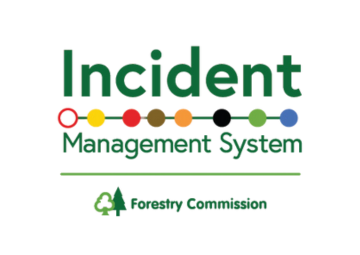Select tab
About
This Lantra-accredited Customised Award is exclusively developed and delivered by a Lantra-approved Training Provider, who meets our quality standards. The course is specifically tailored to meet learners’ needs. For further details about the course content and delivery locations, please contact the Training Provider using the details provided below.
The minimum age to undertake this course is 16.
To provide participants with greater knowledge of the specific role of Operations Commander in an Incident Management System, with reference to the Forestry Commission Incident Management System, Defra Generic Plant Health Contingency Plan and other approaches, as well as providing the knowledge to work effectively as part of a Site, Local or National Incident Management Team for incidents or events.
The delivery method for this course is either E-Learning or Classroom.
This course is delivered by the Forestry Commission and all enquiries should be sent to fc.training@forestrycommission.gov.uk.
The finer details
- Principles of Incident Management
- Operations Commander
- Operators, Teams, Sections, Group as well as Sectors and Division Management
- Civil Contingencies and Multi-Agency Working
- Structure and Management of an Incident
- Shared Situational Awareness and Decision Making
- Creating a Strategy – Setting Aims and Objectives
- Leadership
- Personnel Resilience
- Safety at Incidents
- Levels of Command and Control
- After Action Review and Organisational Learning
Who should attend?
What will be covered?
- What is Incident Management and the core principles as defined in the Incident Management System (IMS)
- Role, Responsibilities and Tasks of the Operations Commander
- Role, Responsibilities and Tasks of the Operator, Team, Section, Group Leaders as well as Divisions and Sectors
- Relevant Incident Management processes
- Working with other organisations and responders
- Working with other functions and roles within the Incident Management Team
- How to develop effective Incident Management Team structures
- How to improve shared situational awareness and decision making
- How to develop effective strategic using the aim, objective, tasking and outcomes approach using an Incident Action Plan
- How to provide effective leadership
- How to ensure personal resilience
- How to ensure safety at incidents or events
- How to effective use command and control
- How to be part of an effective After Action Review
Other areas of interest
Wildfire Management Plan Module
Vegetation Fire Operator Module
Vegetation Fire Foundation Module
Local Incident Management Team Workshop
IMS - Team, Section and Group Leader Role
IMS - Subject Matter Advisor Role
IMS - Response and/or Recovery Officer Role
IMS - Investigation Officer Role
IMS - Intelligence Officer Role
IMS - Incident Controller and Deputy Role
Search for providers near you
If there are no suitable courses listed above, please fill in the details below and this will display a list of other course providers who also deliver this course.



